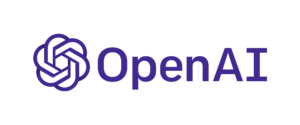The 10 top artificial intelligence certifications and courses for 2024, as highlighted by TechTarget, are designed to provide comprehensive training in AI, covering both the basics and practical applications of the technology. These courses and certifications are essential for professionals seeking to establish themselves in the AI field, as they offer a competitive edge and demonstrate proficiency in the latest AI developments.

- Artificial Intelligence Graduate Certificate by Stanford University School of Engineering: This graduate certificate program from Stanford University provides a comprehensive introduction to AI, covering topics such as machine learning, robotics, natural language processing, and computer vision.
- IBM AI Engineering Professional Certificate: This program from IBM focuses on AI engineering, including machine learning, deep learning, and AI model development. It also covers ethical considerations and responsible AI practices.
- Deep Learning Specialization by Coursera: Offered by Andrew Ng, this specialization on Coursera covers the essentials of deep learning, including neural networks, convolutional neural networks, and recurrent neural networks.
- Artificial Intelligence Nanodegree by Udacity: This nanodegree program from Udacity offers a comprehensive curriculum in AI, including machine learning, deep learning, computer vision, and natural language processing.
- Professional Certificate in Computer Science for Artificial Intelligence by edX: This program from edX, offered by Microsoft, covers the fundamentals of AI, including machine learning, deep learning, and cognitive services.
- AI for Healthcare by Stanford University: This course from Stanford University focuses on the application of AI in healthcare, covering topics such as medical imaging, electronic health records, and clinical decision support.
- AI in Finance by MIT: This course from MIT focuses on the application of AI in finance, covering topics such as algorithmic trading, risk management, and fraud detection.
- AI for Business by MIT: This course from MIT focuses on the application of AI in business, covering topics such as decision-making, operations, and marketing.
- AI for Manufacturing by MIT: This course from MIT focuses on the application of AI in manufacturing, covering topics such as process optimization, predictive maintenance, and quality control.
- AI for Government by MIT: This course from MIT focuses on the application of AI in government, covering topics such as public policy, ethics, and transparency.
These certifications and courses provide a solid foundation in AI, enabling professionals to stay up-to-date with the latest developments in the field and to apply AI technologies in various industries and applications.
Some of the top AI careers to consider in 2024 include:
- Machine Learning Engineer: Machine learning engineers research, build, and design AI responsible for machine learning. They maintain and improve existing AI systems, run experiments and tests, perform statistical analyses, and develop machine learning systems. The average salary for a machine learning engineer is $123,000.
- Data Engineer: Data engineers build systems that collect, manage, and convert raw data into usable information for data scientists, business analysts, and other data professionals to interpret. Data engineering is a broad field with applications in nearly every industry. The average salary for a data engineer is $113,000.
- AI Product Manager: AI product managers are responsible for developing and launching AI products. They need to understand the hardware, programming languages, data sets, and algorithms involved in making an AI application. AI product managers need to lead teams, schedule milestones, and develop AI apps, which is not the same as creating a web app.
- AI Research Scientist: AI research scientists are responsible for designing and implementing AI models, developing AI algorithms, and conducting research to advance AI technology. They often collaborate with data scientists and machine learning engineers to build AI systems. The average salary for an AI research scientist is $122,000.
- AI Ethicist: AI ethicists are responsible for ensuring that AI systems are designed and used ethically, with a focus on fairness, accountability, transparency, and privacy. They work to identify and address potential ethical issues in AI systems and develop guidelines and policies to ensure that AI is used responsibly. The average salary for an AI ethicist is $95,000








